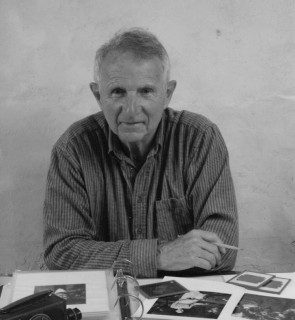
Donald Pitkin
Donald S Pitkin, 90, died after a long battle with Parkinson?s disease on May 11, 2012. Born January 6, 1922, he attended Greenough School in Dedham and matriculated to Harvard. Don interrupted his studies to enlist in the 10th Mountain Division. As a Second Lieutenant, he was trained as a forward artillery observer and was preparing for the invasion of Japan when the war ended. He returned to Harvard where he received his BA (1947) and PhD (1954). Don married Emily Knap in 1948 and theyhad two children, Donald Stevenson Pitkin III and Roxanna Pitkin McKeever.
Don became an assistant professor of anthropology at Northeastern University in 1954. In 1964 he joined Amherst College as their first professor of anthropology and the founder of the department of anthropology and sociology. He retired from Amherst in 1992.
Don?s interest in anthropology was ignited by Ruth Benedict?s Patterns of Culture as a history major at Harvard. In graduate school his primary influence was Clyde Kluckhohn. In those days, anthropologists studying European societies was a risky career choice,?but Don was determined to do his research in an Italian village. His dissertation focused on a village in the Pontine Marshes where he studied family relations and land tenure. The resulting thesis generated a number of important publications, most notably a book and film, both entitled The House that Giacomo Built: History of an Italian Family, 1898?1978.
Don?s Italian work was widely acclaimed. The House the Giacomo Built won two prizes in 1988, both from Italian sources: the Premo Guido Dorso and the Premio Internazionale de Studi Etnoantropologici. During the 2000 AAA Annual Meeting, a special panel was organized to celebrate Don?s achievements. Papers were presented by a number of distinguished colleagues from the US and abroad.
As rich and illuminating as Don?s writings are, it was in the classroom that he felt most fulfilled. His teaching was gentle and humane. It was deeply informed by political values, but the strength of Don?s convictions was always well-balanced by his respect for any point of view that was intellectually serious, even if it went against his perspective. Although his outlook was relativistic in keeping with the spirit of the kind of anthropology with which he most identified, this never meant that he was without standards.?He had deep political commitments as well as serious pedagogic values. He fought for the former and maintained the latter. He demanded much from his students, but gave them much in return. They remember him with great respect and affection.
Don?s final years were beset by multiple and debilitating illnesses, but he never lost his love of life and he never ceased living it to its fullest. He was an engaged citizen of the town and of the world and an active member of the Council on Aging. His home, by design, lay a mere few blocks from the center of Amherst, and even in his final years Don could be seen in town, participating in life. (His colleagues)
Source: http://www.anthropology-news.org/index.php/2013/01/09/donald-s-pitkin/
malin akerman jeff carter chomp national enquirer kate gosselin helicopter crash matt jones
No comments:
Post a Comment
Note: Only a member of this blog may post a comment.